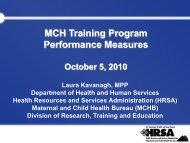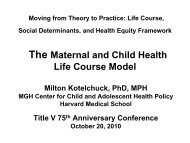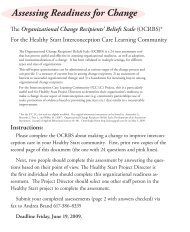2011 AMCHP and Family Voices National Conference ... - HRSA
2011 AMCHP and Family Voices National Conference ... - HRSA
2011 AMCHP and Family Voices National Conference ... - HRSA
You also want an ePaper? Increase the reach of your titles
YUMPU automatically turns print PDFs into web optimized ePapers that Google loves.
<strong>2011</strong> <strong>AMCHP</strong> <strong>and</strong> <strong>Family</strong> <strong>Voices</strong> <strong>National</strong> <strong>Conference</strong>: Welcome Plenary <strong>and</strong><br />
MacQueen Memorial Lecture<br />
02/13/<strong>2011</strong> Omni Shoreham, Washington, D.C.<br />
organization, we can look for a different group of stakeholders. We can<br />
actually ask who is it that cares about our problems <strong>and</strong> who is it that cares<br />
about our solutions? I have found that the corporate world knows the<br />
same thing that my government colleagues know, that it does $300,000 to<br />
save a life of a baby. Even though we know it, sometimes it's hard in the<br />
government sector to turn the curve <strong>and</strong> do something about it. But the<br />
corporate sector is very, very much want *** to turn that curve because<br />
they don't want to keep putting money into solving a problem <strong>and</strong> not<br />
solve the problem. So we have an opportunity to look at other<br />
stakeholders in terms of saying do you want to help us solve the problem.<br />
When you look at the amount of money in both the national economy <strong>and</strong><br />
the global economy that is spent solving the problems of black women,<br />
women of African descent, whether you're talking Africa, you're talking<br />
Latin America, you're talking the United States or Canada. Wherever we<br />
are, we're spending money because our sons are the ones who are<br />
incarcerated. I think the second largest industry in California is the prison<br />
industry. And the vast majority of men who drive the prison industries are<br />
our sons. When you look at the education industry <strong>and</strong> you look at all the<br />
money that we spend trying to fix our education system, we're talking<br />
about kids of color. When you look at how we invest that money <strong>and</strong> who<br />
is actually getting that money, people of color in the United States get less<br />
than 10%. I think it's only 7% of the funding actually goes into people of<br />
color-led organizations. So people outside of that community <strong>and</strong> those<br />
communities get the bulk of the funding <strong>and</strong> the bulk of the responsibility<br />
to solve the problem which they cannot solve by themselves. That's why<br />
my challenge to you, <strong>and</strong> I think my contributions to the field, is for us to<br />
figure out how we can integrate our communities into our bigger system.<br />
And by that I don't mean hiring outreach workers. I don't mean figuring<br />
out more ways to have us to go in <strong>and</strong> do what we think needs to be done.


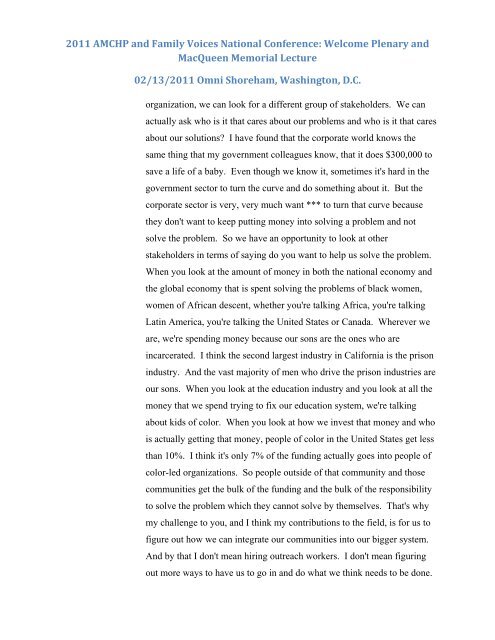
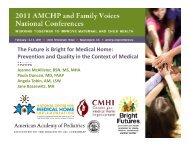
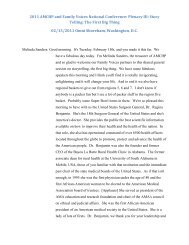
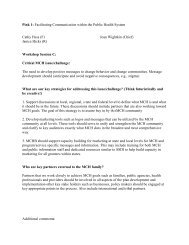



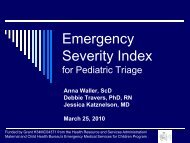
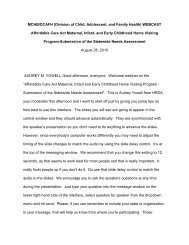
![Hormone Disruptors and Women's Health: Reasons for Concern [PDF]](https://img.yumpu.com/19410002/1/190x245/hormone-disruptors-and-womens-health-reasons-for-concern-pdf.jpg?quality=85)

